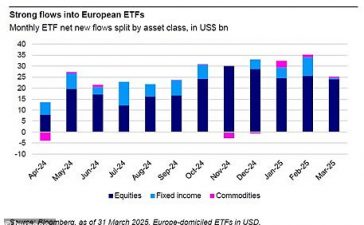
Even as home prices hit new highs, experts say there are signs that the housing market is becoming better for buyers in some locations.
The median cost of an existing, single-family home in the U.S. was $426,900 in June, a new all-time high, according to the National Association of Realtors. About 3.89 million homes were sold in June, a 5.4% decrease from May, NAR found.
While mortgage rates have declined from their May peak, borrowing costs remain expensive for buyers. The average 30-year fixed rate mortgage in the U.S. nudged up to 6.78% from 6.77% on Thursday, according to Freddie Mac data via the Federal Reserve.
Despite those headwinds, some indicators show the housing market is shifting away from a seller’s market.
That doesn’t mean it’s a buyer’s market — yet: “The term buyer’s market is always a bit tricky to work with,” said Chen Zhao, the economic research lead at Redfin, an online real estate brokerage firm. There are “rules of thumb” to define a buyer’s market, like having more than four months of supply, she said.
“The market is certainly tilting more towards buyers, I would say maybe it’s coming more into balance,” said Zhao. “Things are better, but they’re not great yet.”
Orphe Divounguy, a senior economist at Zillow, agreed.
“We’re still nationwide somewhat in a seller’s market, not a buyer’s market yet,” he said. “However there’s good news for buyers on the horizon.”
4 signs of ‘a more neutral market’
There’s still an affordability challenge at large. But those buyers who can certainly afford to purchase, they’re “realizing the pendulum is swinging back slightly in their favor,” said Divounguy. “Things are moving towards a more neutral market,” he said.
Here are four signs that can help you recognize if the housing market in your area is more in buyers’ favor:
1. Homes are lingering on the market longer
As homes sit on the market for longer, buyers might have an opportunity to get a property for under its listed price, Daryl Fairweather, chief economist at Redfin, previously told CNBC.
About 64.7% of homes that were on the market in June have been listed for at least 30 days, up from 59.6% from a year ago, according to Redfin. Homes are sitting on the market for slightly longer because mortgage rates and prices are still generally high for buyers.
More from Personal Finance:
How down payment-assistance programs can help buy a home
It’s too hot to sell a house. What home sellers can do
Some renters may be ‘mortgage-ready’ and not know it
According to Zillow data, homes are on sale for 46 days, compared to 35 days last year and 19 days in 2021, said Divounguy. “So homes are staying on the market for longer.”
2. Buyers are backing out
Sdi Productions | E+ | Getty Images
In some areas, homebuyers are backing out of a home purchase after making it as far as closing.
About 56,000 home-purchase agreements were canceled in June, Redfin found. Some of those abandoned deals may stem from buyers rethinking their budget and needs.
“Buyers are getting more and more selective,” Julie Zubiate, a Redfin Premier real estate agent in the San Francisco Bay Area, wrote in the Redfin report. “They’re backing to due to minor issues because the monthly costs associated with buying a home today are just too high to rationalize not getting everything on their must-have list.”
“You really don’t think about insurance and taxes,” said Selma Hepp, chief economist at CoreLogic. “Then you get the first estimate from a lender and then you decide to back out.”
3. Sellers have more competition
In other cases, buyers might be getting pickier as more listings pop up in their area.
Total housing inventory registered at the end of June was 1.32 million units, up 3.1% from May and 23.4% from a year ago. Unsold inventory is at a 4.1-month supply, up from 3.7 months in May and 3.1 months a year ago, according to NAR.
Competition is easing fastest in the South, where all major southern markets except Dallas and Raleigh are either neutral or buyer-friendly, according to the June 2024 Zillow Housing Market Report.
“With more inventory, that does certainly mean that buyers have more options,” said Hepp, “but that is very regional. And the ones with the most increases in inventories, they’re struggling with other issues.”
4. Sellers are cutting prices
For a few years, home sellers have had the advantage of selling their homes for more than they bought it because valuations have skyrocketed, compounded with the fact that homes have been in low supply for so long.
“Sellers are having to do a little bit more to entice buyers,” said Divounguy. “We see one in four sellers are cutting their prices — the most for any June in the last six years — to try to sway buyers.”
About one in five, or 19.8%, of homes for sale in June had a price cut, the highest level of any June on record, according to Redfin. That’s up from 14.4% from a year ago.
Home builders are also trying to attract buyers: About 31% of builders cut prices to increase home sales, up from 29% in June and 25% in May, according to a July 2024 survey by the National Association of Home Builders.










